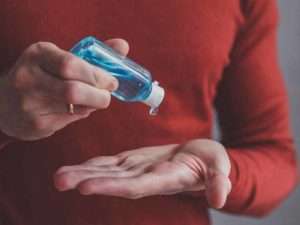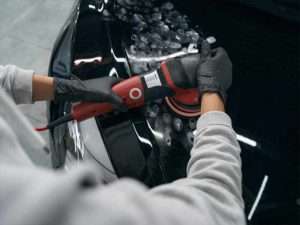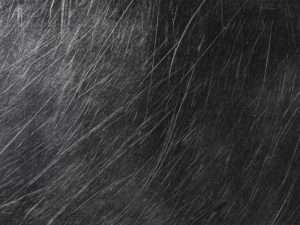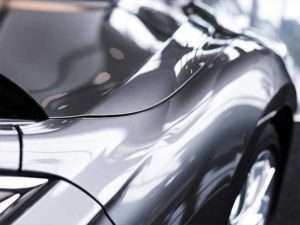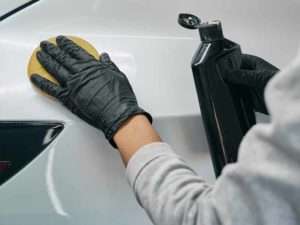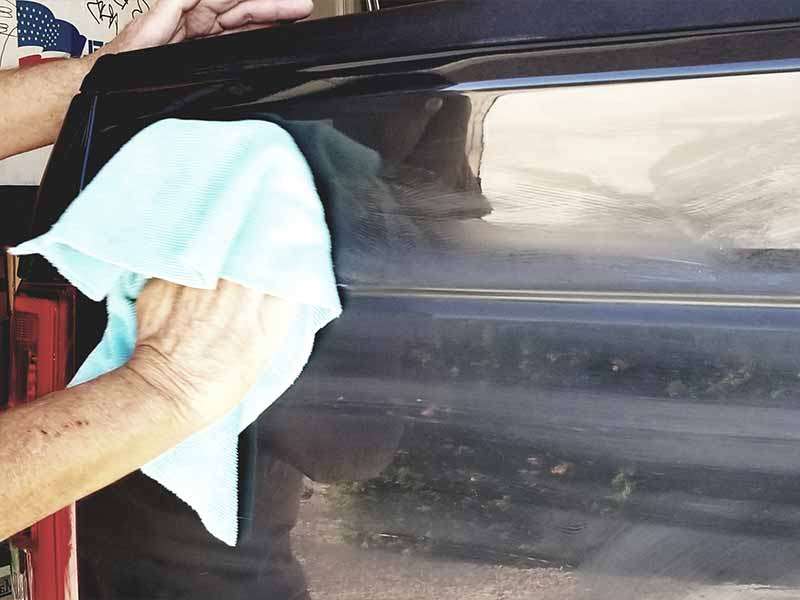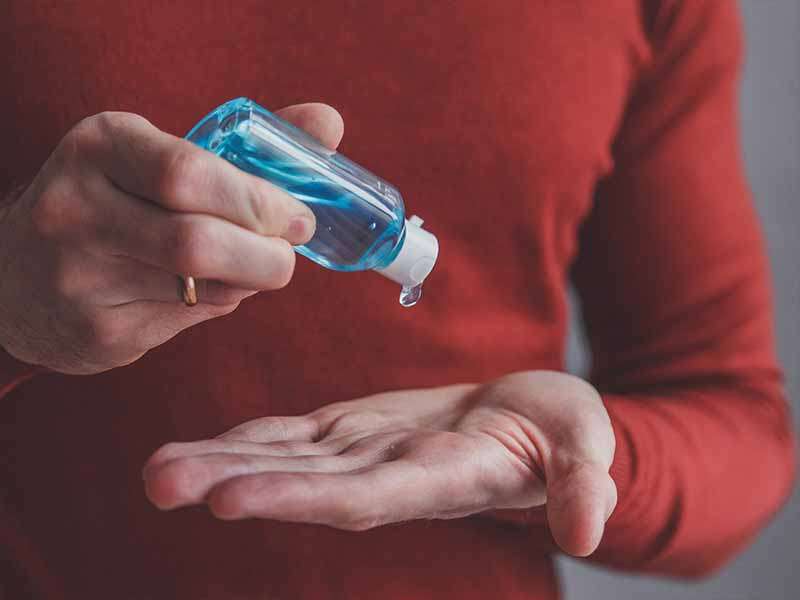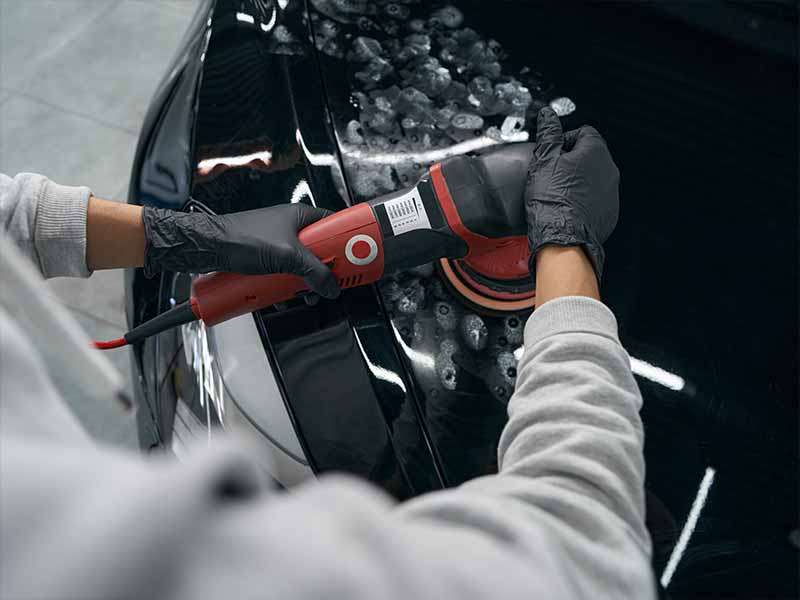Table of Contents
When it comes to washing a vehicle, there’s no rulebook that comes with your car. This leads a lot of car owners to use less-than-ideal methods and products to clean a dirty car. Is Windex one of these chemicals?
Can You Use Windex On Car Paint?
No, you cannot use Windex on your car’s paint.
It will dissolve and eventually strip the delicate topcoat of your car. This can lead to rust as well as your car paint fading, peeling, and chipping.
Instead, you should use soaps that are designed specifically for car paint such as a quality car shampoo, quick detailer, or waterless wash.
In this guide, our detailing experts are going to talk about what happens when you use Windex on car paint and what problems you may encounter.
Let’s dive in.
Using Windex on Your Car’s Windows
First off, we should explain the temptations that might cause you to use Windex on your car paint. It’s a great glass cleaner and will make your car’s windows shiny and streak-free. In fact, Windex will even get rid of grime and dirt that might be lingering on your windshield.
Since everyone is looking for a shiny car, it makes sense that you might want to try the same chemical on the rest of your car. After all, so many kitchen cleaners can be used on basically any surface to make it shiny.
This is where the trouble starts.

Over time, Windex will cause serious damage to your vehicle’s clear coat.
How Windex Works
Windex has a multitude of chemicals and agents mixed together in their spray bottle — 8 to be exact. The chemicals included are designed to remove oil, grease, tree sap, and dirt from a window.
When Windex is sprayed on a piece of glass, these chemicals will allow surface contaminants to be wiped away.
Since windows are made of sand and limestone, they’re able to withstand harsh products and chemicals. To do a better job of quickly and effectively removing tough grease and dirt, Windex opts to use these harsher chemicals.
Car paint, however, cannot withstand the same treatment.

If you’re looking for a product that you can easily carry with you to clean small areas, a quick detailer or a waterless wash are what you’re looking for.
Can Windex Be Used on Car Paint?
This leads us to the question: can Windex be used on car paint? No, Windex should never be used on your car’s paint. Even the “all-purpose” versions of Windex can do some significant damage to your paint.
It’s because your car’s paint is very delicate. There’s a clear layer of paint, called a “topcoat”, that goes over the colored paint on your ride.
The first job of a topcoat is to protect your car’s colored paint. This undercoat of paint is very vulnerable to scratching, fading, and corroding. The clear coat on top is durable and prevents all of these issues.
In addition, this clear coat gives your car a shiny finished look. When you wax and polish your car, the resulting shininess is due to effects on the topcoat.
When Windex is applied, this topcoat gets chemically removed. Now, your car’s paint is exposed to the elements and will start to degrade. If Windex comes in contact with your car’s paint enough, the clear coat won’t be able to protect your car anymore.
Even if your car is especially dirty and you use a very small amount of Windex, your car can still suffer.
What Windex Is Made Of?
If you look at the ingredients list of Windex, you’ll find 8 key ingredients. Two of the more dangerous ingredients included are ammonia and isopropyl alcohol (rubbing alcohol).
Undiluted isopropyl alcohol is also used as a paint stripper. Windex has a high enough concentration of this alcohol to do exactly that to your car’s topcoat.
Ammonia is a chemical that you’re probably more familiar with. It’s used in a lot of cleaners since it’s a strong chemical. The downside is that it’s too strong to come in contact with your car’s paint. It will actually dissolve car paint, clear coats, and car wax that are on your vehicle.

A proper car wash shampoo like Mr. Pink from Chemical Guys is a much more appropriate choice for cleaning car paint.
What About Ammonia-Free Glass Cleaners?
After establishing that Windex is a bad idea, what about opting for an ammonia-free glass cleaner? Just like ammonia-based Windex, we wouldn’t suggest using ammonia-free glass cleaners on your car’s paint.
Almost all glass cleaners should be strictly used on glass. Most glass cleaners contain chemicals that are too strong for car paint and will strip off the paint while damaging your car.
Reasons to Avoid Using Windex on Car Paint
To keep things simple, we put together this quick list. This will outline the biggest reasons why you should avoid using Windex on car paint.
It Has Ammonia in It
Ammonia is a harsh and dangerous chemical. There are concentrated levels present in Windex which will damage your car’s topcoat.
There Is Isopropyl Alcohol in Windex
When used on car windows or tinted windows, the isopropyl alcohol within Windex will break down grease and release it, so it can be removed. The same chemical will also strip car paint and remove the protective top coat from your vehicle.
It’s Designed for Cleaning Glass-Like Car Windows
At its core, Windex is designed for cleaning glass. Since glass is a more robust material, Windex can use harsher chemicals. Since paint is not as robust, it will get damaged from the same chemicals.
Although there are plenty of DIY examples of using a product outside of its intended use, Windex can be dangerous when it’s used outside of cleaning car windows or tinted windows.
Oxidation and UV Damage Will Be Accelerated
Any amount of damage from UV rays or oxidation will get accelerated by using Windex. While the alcohols in a good glass cleaner quickly dissolve, some of the solvents will stick around. When oxygen and/or direct sunlight interact with these solvents, damage will be done even quicker to your vehicle.
For instance, UV rays are known to fade your car’s paint. After using Windex, you’ll notice that your car’s paint fades even quicker, which might require a new paint job to fix.
Car Paint Is Sensitive
Above all else, car paint is sensitive and delicate. When it comes in contact with the wrong chemical, bad things can happen.
It’s surprisingly easy to dissolve and strip the topcoat of your car. This is why we keep stressing the importance of keeping chemicals away from your paint unless they’re designed for cleaning vehicle bodies.

Quick detailers are great for small touch-up cleaning, while waterless wash is better for bigger jobs, even cleaning your entire exterior.
The Safest Way to Clean Car Paint
If your car is dirty and you want to clean it, forget about using Windex. Instead, grab safe products from our list of recommended car washing products. Since these products are specifically made for your car’s paint, you’ll get the best possible results.
More specifically, none of our suggested products include the harsh chemicals found in Windex that strip and destroy your car’s paint.
You should avoid products that aren’t labeled as “safe for automotive paint”.
Instead of using chemicals, use soap, microfiber cleaning cloths, and a bucket of water.
Helpful Links
Conclusion: Windex On Car Paint
By keeping Windex away from your car’s paint, you’ll enjoy paint that looks better while avoiding the lasting damage that comes from getting this glass cleaner on your topcoat.
Remember, your car’s paint is very delicate and serves an important function. With a damaged topcoat, your car might suffer irreversible damages.

